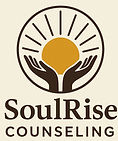Healing Relationships: Effective Couples Counseling Approaches
- Elizabeth Torbenson
- Nov 4, 2025
- 4 min read
Relationships face challenges that can strain even the strongest bonds. When conflicts arise, couples often struggle to communicate, understand each other, and rebuild trust. Couples counseling offers a path to healing by providing tools and guidance to navigate these difficulties. This post explores effective approaches in couples counseling that help partners reconnect, resolve conflicts, and strengthen their relationship.

Understanding the Need for Couples Counseling
Many couples hesitate to seek counseling until problems become overwhelming. Yet, counseling is not only for crisis moments. It can also support couples in improving communication, deepening intimacy, and preventing future conflicts. Common reasons couples seek counseling include:
Frequent arguments or unresolved conflicts
Loss of trust or infidelity
Communication breakdowns
Emotional distance or lack of intimacy
Life transitions such as marriage, parenthood, or career changes
Recognizing these signs early can help couples address issues before they escalate. Counseling provides a safe space to explore feelings, identify patterns, and learn new ways to relate.
Key Approaches in Couples Counseling
Several counseling methods have proven effective in helping couples heal and grow. Each approach offers unique tools and perspectives tailored to different relationship dynamics.
Emotionally Focused Therapy (EFT)
EFT focuses on identifying and changing negative emotional patterns between partners. It helps couples understand their emotional responses and attachment needs. The therapist guides partners to express vulnerable feelings and create secure emotional bonds.
How EFT works:
Identifies negative cycles of interaction
Encourages open expression of fears and needs
Builds empathy and emotional connection
Strengthens attachment and trust
EFT is especially useful for couples struggling with emotional distance or repeated conflicts rooted in unmet attachment needs.
The Gottman Method
Developed by Drs. John and Julie Gottman, this approach is based on extensive research on what makes relationships succeed or fail. It focuses on improving communication, managing conflict, and building friendship.
Core components include:
Enhancing fondness and admiration
Turning toward each other instead of away
Managing conflict constructively
Creating shared meaning and goals
The Gottman Method uses practical exercises and assessments to help couples build a strong foundation and navigate challenges.
Cognitive Behavioral Therapy (CBT) for Couples
CBT helps couples identify and change unhelpful thoughts and behaviors that contribute to conflict. It focuses on problem-solving and developing healthier interaction patterns.
CBT techniques include:
Recognizing negative thought patterns
Practicing effective communication skills
Setting realistic expectations
Developing coping strategies
CBT is effective for couples dealing with specific issues like communication problems, stress, or anxiety affecting their relationship.
Imago Relationship Therapy
Imago therapy explores how early childhood experiences shape relationship dynamics. It helps partners understand how unconscious needs and wounds influence their interactions.
Key elements:
Creating safe dialogue to express feelings
Understanding each other’s childhood influences
Healing past wounds through empathy
Building conscious connection
This approach fosters compassion and deeper understanding, helping couples break negative cycles rooted in past experiences.
Practical Tools Couples Learn in Counseling
Counseling equips couples with skills they can use daily to maintain a healthy relationship. Some practical tools include:
Active listening: Fully focusing on your partner’s words without interrupting or judging.
I-statements: Expressing feelings and needs without blaming, e.g., “I feel hurt when…”
Time-outs: Taking breaks during heated arguments to cool down and prevent escalation.
Regular check-ins: Setting aside time to discuss feelings, concerns, and appreciation.
Conflict resolution techniques: Finding compromises and solutions that respect both partners’ needs.
These tools help couples communicate more clearly, reduce misunderstandings, and resolve conflicts constructively.
Real-Life Example of Couples Counseling Success
Consider Sarah and James, who came to counseling after years of growing apart. They often argued about finances and felt disconnected emotionally. Through Emotionally Focused Therapy, they learned to express their fears and vulnerabilities. Sarah shared her anxiety about financial security, while James revealed his fear of rejection.
With their therapist’s help, they recognized their negative interaction cycle and replaced it with supportive communication. Over several months, their emotional bond strengthened, and they developed shared goals for their future. Counseling helped them move from frustration to understanding and renewed commitment.
When to Seek Couples Counseling
Couples counseling can benefit relationships at any stage. It is helpful when:
Communication feels stuck or hostile
Emotional connection fades
Trust has been broken
You want to improve your relationship proactively
Facing major life changes together
Early intervention often leads to better outcomes. Waiting too long can make problems harder to resolve.
Choosing the Right Counselor
Finding a counselor who fits your needs is crucial. Consider these factors:
Credentials and experience in couples therapy
Approach or methods used
Comfort level with the therapist
Availability and location
Cost and insurance coverage
Many therapists offer initial consultations to help you decide if they are the right fit.
Tips for Making the Most of Couples Counseling
Be open and honest with your therapist and partner
Commit to attending sessions regularly
Practice skills learned between sessions
Be patient; change takes time
Focus on progress, not perfection
Counseling is a collaborative process that requires effort from both partners.
Healing a relationship takes courage and commitment. Couples counseling offers proven approaches to help partners reconnect, communicate better, and build a stronger future together. If your relationship faces challenges, seeking support can be the first step toward lasting healing and growth. Take that step today to invest in your relationship’s health and happiness.






Comments